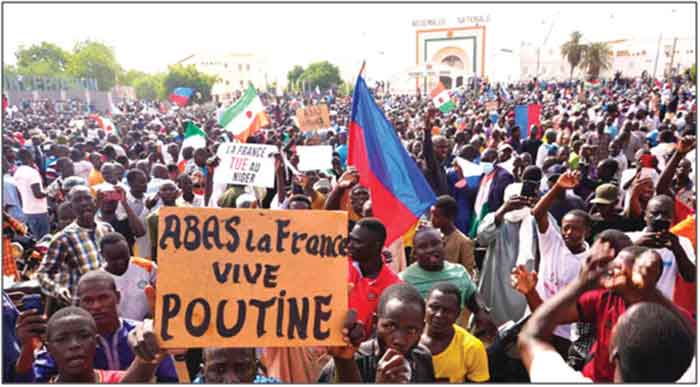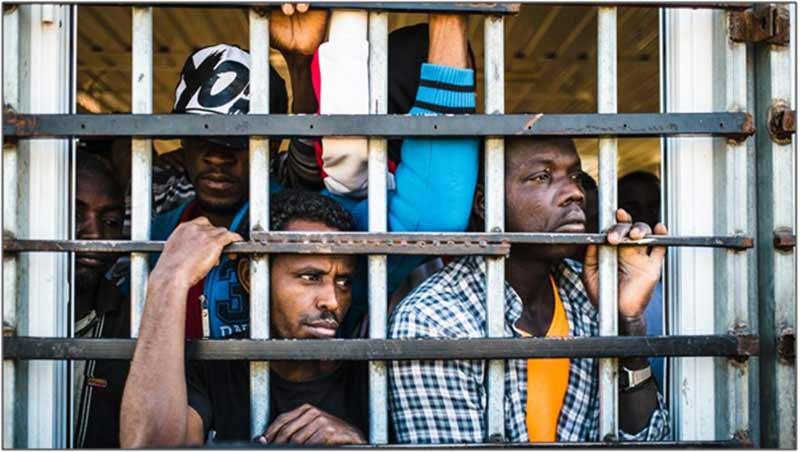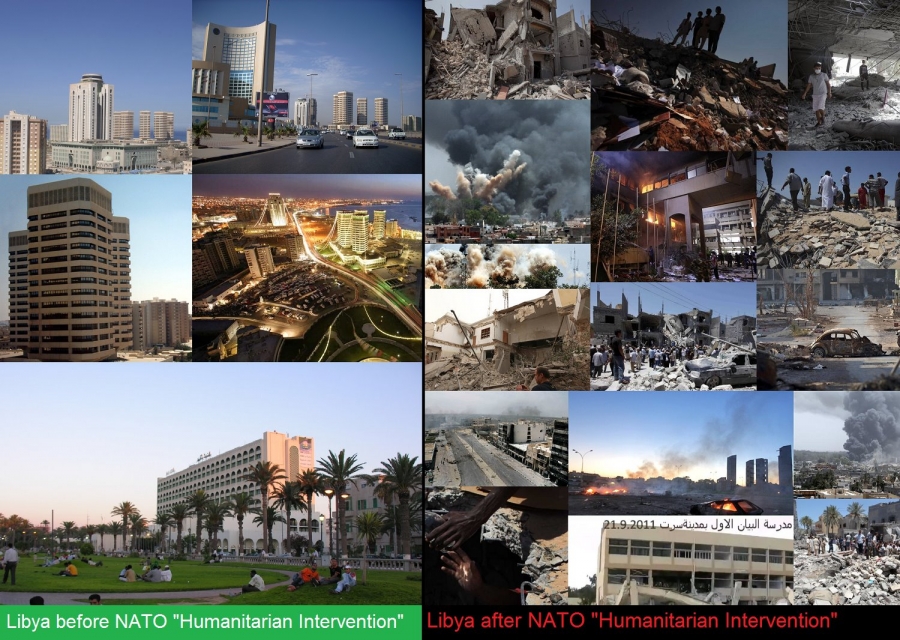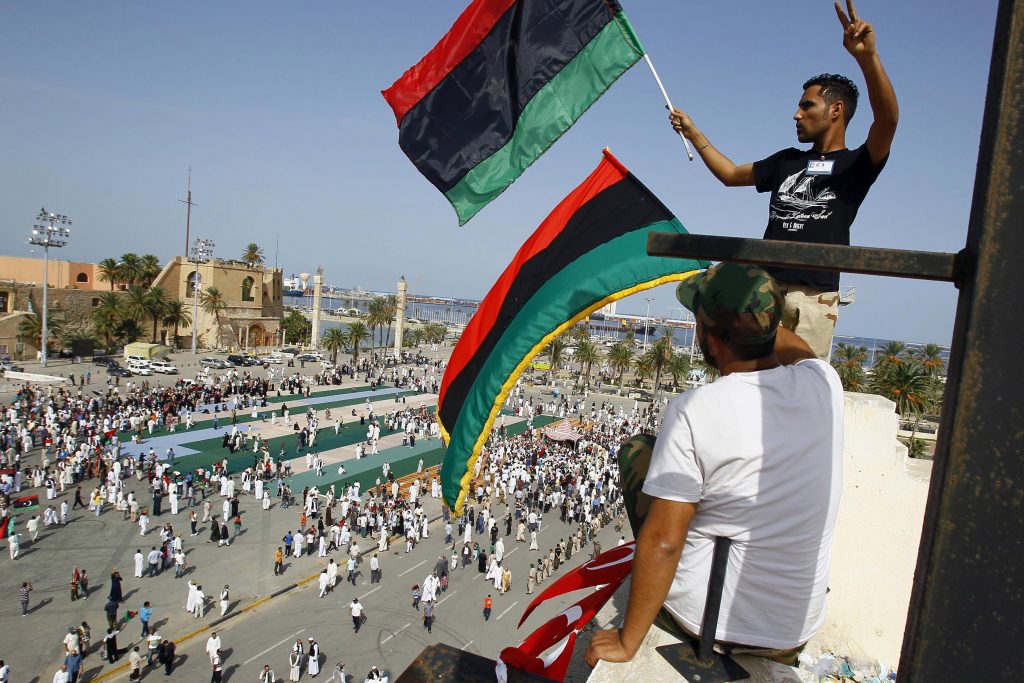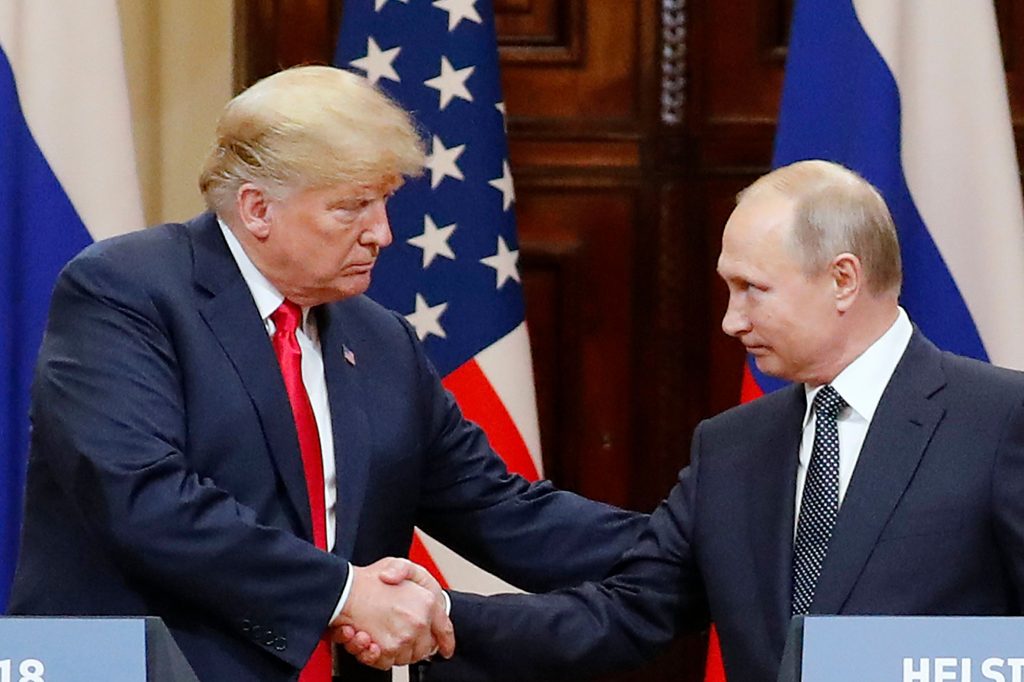
There is little that Russia and the United States agree on these days. Renegade Libyan Field Marshal Khalifa Belqasim Haftar may be a rare exception.
As Mr. Haftar’s mortars rained on the southern suburbs of the Libyan capital Tripoli and fighting between his Libyan National Army (LNA) and the United Nations-recognized government expanded to the south of the country, both Russia and the United States stopped a call for a ceasefire from being formally tabled in the UN Security Council.
Russia, which has joined US allies that include the United Arab Emirates, Saudi Arabia, Egypt and France, in supporting Mr. Haftar because of his grip on Libya’s oil resources and assertions that Islamists dominate the Tripoli government, objected to the British draft resolution because it blamed the rebel officer for the fighting.
The United States gave no reason for its objection. Yet, it shares Russia’s aversion to Islamists and clearly did not want to break ranks with some of its closest Middle Eastern allies, certainly not at a time that the UN was investigating allegations that the UAE had shipped weapons to Mr. Haftar in violation of an international arms embargo.
The significance of US-Russian agreement on Mr. Haftar’s geopolitical value goes far beyond Libya. It reveals much of how presidents Donald J. Trump and Vladimir Putin see the crafting of a new world order. It also says a great deal about Russian objectives in the Middle East and North Africa.
Messrs. Trump and Putin’s preference for a man with a questionable human rights record who, if successful, would likely rule Libya as an autocrat, reflects the two leaders’ belief that stability in the Middle East and North Africa is best guaranteed by autocratic rule or some democratic façade behind which men with military backgrounds control the levers of power.
It is a vision of the region promoted by representatives of UAE crown prince Mohammed bin Zayed who sees authoritarian stability as the best anti-dote to popular Arab revolts that swept the region in 2011 and more recently in Algeria and Sudan are proving to have a second lease on life.
Underlying the Trump-Putin understanding is a tacit agreement among the world’s illiberal, authoritarian and autocratic leaders on the values that would underwrite a new world order. It is an agreement that in cases like Libya reduces rivalry among world powers to a fight about the divvying up of the pie rather than the concepts such as human and minority rights that should undergird the new order.
Moscow’s support for Mr. Haftar serves Russia’s broader vision of the Middle East and North Africa as an arena in which Russia can successfully challenge the United States even if Messrs. Trump and Putin agree on what side to support in a Libyan civil war that is aggravated by the interference of foreign powers.
Russia national security scholar Stephen Blank argues that Mr. Putin’s strategy is rooted in the thinking of Yevgeny Primakov, a Russian Middle East expert, linguist and former spymaster, foreign minister and deputy prime minister.
Mr. Primakov saw the Middle East as a key arena for countering the United States that would enable Russia, weakened by the demise of the Soviet Union and economic problems, to regain its status as a global and regional power and ensure that it would be one pole in a multi-polar world.
“In order to reassert Russia’s greatness, Primakov and Putin aimed ultimately at strategic denial, denying Washington sole possession of a dominant role in the Middle East from where US influence could expand to the Commonwealth of Independent States (CIS)” established in the wake of the demise of the Soviet Union to group post-Soviet states, Mr. Blank said.
Messrs. Primakov and Putin believed that if Russia succeeded it would force the United States to concede multi-polarity and grant Russia the recognition it deserves. That, in turn, would allow Mr. Putin to demonstrate to the Russian elite his ability to restore great power status.
Syria offered Russia the opportunity to display its military prowess without the United States challenging the move. At the same time, Russia leveraged its political and economic clout to forge an alliance with Turkey and partner with Iran. The approach served to defang Turkish and Iranian influence in the Caucasus and Central Asia, Mr. Blank argued.
Similarly, Russia after brutally repressing religiously inspired Chechen rebels in the 1990s and despite the lingering memory of the Soviet invasion of Afghanistan, has in line with UAE precepts, proven to be far defter than either China or the United States at promoting politically pacifist or apolitical loyalist Islam in a complex game of playing both sides against the middle.
Russian engagement runs the gamut from engaging with militants to cooperating with Muslim autocrats to encouraging condemnation of activist strands of ultra-conservative Islam to hedging its bets by keeping its lines open to the Tripoli-based Government of National Accord (GNA).
Even if Russia may be walking a tightrope in balancing its relationships with Mr. Haftar and GNA Prime Minister Fayez al-Sarraj, like in Syria, it is positioning itself with the backing of the UAE, Saudi Arabia and Egypt as the potential mediator that maintains ties to both sides of the divide.
Said Russian foreign minister Sergei Lavrov: “We believe that Libya’s future must be determined by the Libyans themselves. We are convinced that there is no alternative to an inclusive intra-Libyan dialogue… Our work on this track proceeds in this spirit and the belief that there is no alternative to preserving the sovereignty and territorial integrity of Libya.”
Dr. James M. Dorsey is a senior fellow at Nanyang Technological University’s S. Rajaratnam School of International Studies, an adjunct senior research fellow at the National University of Singapore’s Middle East Institute and co-director of the University of Wuerzburg’s Institute of Fan Culture
A podcast version of this story is available on Soundcloud, Itunes, Spotify, Stitcher, TuneIn, Spreaker, Pocket Casts and Tumblr

